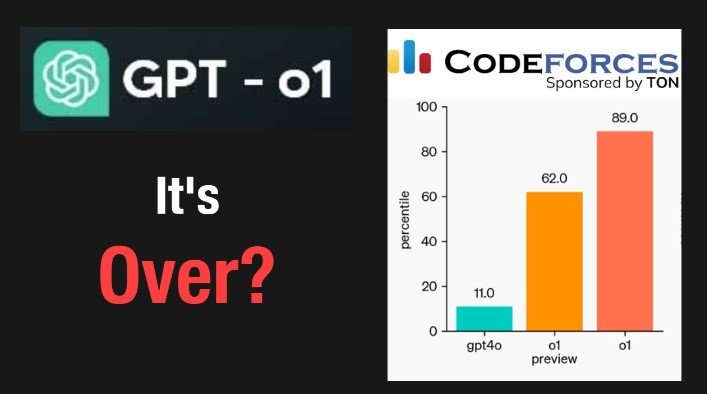Exploring the Flaws and Shortcomings of OpenAI’s Newest Code Generator
In recent years OpenAI has gained a massive reputation for its state-of-the-art AI models. OpenAI has been pioneering this space from GPT to DALL-E. Recently, they unveiled the OpenAI o1 to help with coding. This new interface was hyped before its release, but since its launch, many developers and users alike demonstrated their displeasure with the type of performance it created. This article delves into the reasons why OpenAI GPT o1 is lacking in coding and will elaborate on specific limitations that prove unfavorable for developers.
1. Poor Understanding of Complex Code
And perhaps the biggest complaint of OpenAI 0.1 is that it can struggle to handle more complex coding tasks effectively. It may be great at simple code generation, but it falls flat when tougher code needs to be developed or debugged. The logic is generally more deeply rooted in programming here, meaning developers often report that OpenAI o1 writes the wrong code or does not understand some of the intricacies of these if and else.
For example, OpenAI o1 often gives simple solutions because it lacks the in-depth knowledge about data structures or algorithms required for solving more complex problems on complex algorithms or projects. Devs working on large-scale or critical projects are often left frustrated by this lack of reliable code assistance.
2. Frequent Syntax Errors
A further major problem with OpenAI o1 is the amount of times its output code contains syntax errors. One of the most fundamental errors of all (a syntax error), but something that a coding assistant should never write for us the code produced by OpenAI gpt3 often did not even compile. Not only does this defeat the purpose of using an AI tool to save time, but it also involves more steps when it comes the errors to have them corrected by hand-made changes.
A developer will ask OpenAI o1 to write some code in Python or JavaScript and it will write the code with the brackets missing, the wrong variable assigned, and the function called incorrectly. The errors are in some cases so simple that the developer then asks himself if he can rely on this tool for anything but a walk-through of the most basic things.
3. Lack of Contextual Awareness
Much of programming is in recognizing the broader project or objective. OpenAI o1 has a hard time keeping the context this far as well. You could be working on a huge codebase, or toggling between different functions or classes, but OpenAI o1 seems to lose sight of the bigger picture behind it all, making it quite difficult for this tool to return any meaningful code in large/interconnected systems.
As an example, when building a web application and you need OpenAI o1 to generate front-end and back-end code that can work together, it fails at keeping the understanding of how these different parts logically should work. This lack of a shared context leads to code that does not talk well or play nice with the other parts of the project, meaning all manual changes have extra far to go.
4. Inaccurate Error Handling
Error handling is another place where OpenAI o1 falls apart. These are tools that developers frequently use to write code that can not only just generate but also validate the logic for potential exceptions. But sadly in most common cases OpenAI 01 is Unable to catch key issues with scope or Provide solutions that are not fixing the main problem.
Specifically, if a given piece of code is too slow due to unoptimized memory interactions or loops, OpenAI o1 might suggest solutions that work around this issue instead of fixing the original inefficiencies. Worse, still, it often makes suggestions that are causes of new bugs in the system and adds fuel to the fire for developers.
5. Limited Language Support
OpenAI o1, for example, is able to understand concepts in many different programming languages though the quality of that understanding varies. The tool delivers decent results with the popular programming languages like Python and JavaScript, However when faced with a less used or a more niche language the accuracy of this tool goes comparatively down. Developers who use Rust, Julia, or Swift cannot take advantage of code generated by OpenAI o1 for their project needs as it may not even generate the basic levels of code needed in these languages.
OpenAI o1 is also not familiar with what are the most recent updates in languages and libraries. Even though OpenAI o1 offers API that suggests beautiful high-level functions for working with entities, devs using new versions of those languages or cutting-edge libraries may find these suggestions outdated and produce incompatible or naive code.
6. Inconsistent Code Quality
The code quality of OpenAI o1 is beyond respect. Sometimes, it [autogenerated code] will turn out to be an ordered piece of code we can work with (especially if the developer thinks in this way), but most often, what we get is just a mess that was necessary a lot of refactoring. This inconsistency plagued the tool and led to very scary suggestions sometimes, making it unreliable as a coding assistant.
This means that a developer asking for OpenAI o1 to produce some code to perform a specific task would almost certainly get code filled with wasteful variables, inefficient loops, and bad variable names. This means more work for the dev who has to clean up and optimize the code before it can be run.
7. Lack of Debugging Support
The most requested capability from OpenAI o1 was the ability to debug. Unfortunately, the tool fails in this area too. It can catch simple errors like missing semicolons or undeclared variables, but fall short when it comes to more complicated debugging tasks. OpenAI o1 can be unhelpful; when it comes to logical errors, memory leaks, or performance bottlenecks, o1 will often provide very general suggestions that may not even be relevant and lead the developer to investigate such manually.
The absence of full-scale debugging support hurts the usefulness of the tool, especially for those developers looking to use it to save time on troubleshooting and debugging.
8. Over-Reliance on Human Input
OpenAI o1 by no means required human intervention and all code writing would have to be done by hand but there is still a degree of humanism in it. The code is also often incomplete or incorrect and requires significant editing by the user. This can leave developers and data scientists in a situation where they end up spending the same amount of time fixing the code generator boilerplate stuff produced by the AI as if they would have coded it from scratch.
In some cases, OpenAI 01 even suggests code that is too vague or nebulous to be of any practical use without further human input. Such heavy reliance on human input at the front end of methods or processes compromises the efficiency benefits that were supposed to be yielded by deploying the tool in first place.
Conclusion
OpenAI o1 was an initiative that could have changed the face and scope of coding by developers all over the world, but it has really not lived upto our expectations. It reverses complex tasks, syntax errors always seem to be frequent, # lacking of contextual awareness, limited language support etc. As a result, most users certainly experience that OpenAI o1 is more harmful than good for construction functionality. It may serve you to generate some simple code snippets, but it is very far from good enough for anything more complicated. Developers might be better off sticking to traditional coding styles for now or checking out other AI-powered programming tools.



